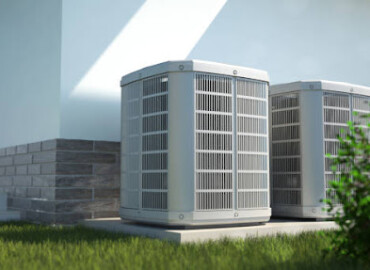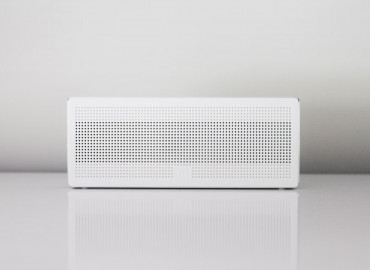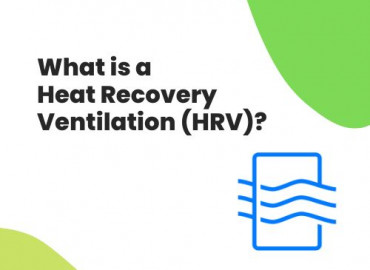Why Is My Fan Not Spinning On Air Conditioner Unit?
When the heat of summer finally arrives, the first thing you need is an air conditioner. The device turns on, and the lights light up, but the fan isn’t turning, and the air coming out of the vents isn’t cold. Having your loved ones sweat it out without air conditioning is a significant inconvenience.
Even though it’s not the most pleasant sound, the click and hum of an air conditioner turned on on a hot day is music to your ears. It’s a welcome sound in Candian, North America, and other states with year-round warm climates where the sun can be unbearable.
Having a functional air conditioning unit is, thus, crucial to living in comfort. The condenser unit (the large box outside) of your air conditioner employs a fan to move air through its coils, converting heated refrigerant gas into a cold liquid that is then used to produce cool air inside your house. If the fan in your air conditioner breaks, you will have cool air once it is repaired.
There might be several causes for your air conditioner’s fan to be stuck and not spinning. Let’s analyze possible causes and solutions.
Reasons Why Your AC Unit Fan Is Not Spinning
Your home’s heating, ventilation, and air conditioning system won’t be able to perform its job correctly if the AC fan isn’t turning. In Canada, there’s a lot that may go wrong with an air conditioner. There are both little and more significant concerns. These are the most typical reasons why an air conditioner fan won’t turn on, as well as warning signs:
1. Faulty Capacitor
A faulty capacitor may be the blame for your air conditioner’s broken fan. Your AC unit’s motor receives power from the capacitor, a tiny, cylindrical component. Its job is to turn on the air conditioner and provide more juice if it needs to stay on.
Some warnings that a capacitor is failing are problems with turning on, off, auto-shutoff, warm air output, AC, and humming from the air conditioner.
A little stick or screwdriver will do for testing the capacitor. Put the bar between the openings and gently push on the fan’s blade. The capacitor is faulty if the fan turns on and stays on without any input from the user.
Faulty Engine
Your air conditioner’s condenser fan motor spins the fan blades, directing outside air over the condenser coils. The cooling air in your home is produced by turning the hot refrigerant gas into a cool liquid. Suppose the fan in your air conditioner suddenly stops spinning. The problem is a faulty motor, which must be fixed or replaced immediately to prevent the entire system from malfunctioning.
2. Issues with the Contactor
An air conditioner contactor is a small component that regulates power to your system. These little components inform your air conditioner whether or not to turn on in response to the temperature you set on your thermostat.
Contactors often fail due to age-related wear and tear or an overheated system. If a contractor in your system burns out, the surrounding alternating current (AC) components will not receive energy and will not work.
A contractor’s “up” or “down” position might also get stuck. Contactors trapped in the “up” position prevent electricity from flowing between components. In contrast, contractors caught in the “down” position keep components cooled long after the cooling cycle.
The contractors directing power to your air conditioner’s fan might be stuck in the “up” position or burned out if it ceases working. Keeping your contractors in good operating order requires regular maintenance and, in some instances, repair.
3. Punctured Belt
Most modern air conditioners utilize direct motors rather than a belt arrangement. On earlier models, though, a damaged belt might be at blame if your fan isn’t working. Fraying, tears, and other damage become more likely as AC belts age. A faulty belt will generate noises like rattling, clicking, or a loud squeaking. If the belt that drives your AC fan breaks, the system will stop functioning.
4. Cracked Blades on the Fan
Damaged fan blades are another potential cause of your air conditioner’s inability to circulate air. You can see the fan blades of your outside unit via the vents. Turn off the system and get it inspected by a professional HVAC technician if you notice any bent, cracked, loose, or otherwise damaged blades.
5. Power Struggles
If the fan in your air conditioner isn’t turning, the problem may be as simple as a lack of electricity. Overheating may cause a breaker to trip. As a result, the air conditioner’s fan won’t turn, and the system won’t cool the room. You may reset the breaker on your home’s electrical panel if it’s not an emergency. A professional electrician or HVAC technician may be required to resolve the issue if the circuit breaker keeps tripping.
Be cautious around the circuit breaker box. High voltage means an electric shock if you touch the incorrect wire. If you are uncomfortable working with electrical components, such as a circuit breaker, it is recommended that you contact a professional electrician or HVAC specialist.
6. Stuck Air Filter
The air conditioner’s fan failure might also result from a dirty air filter. Ice forms within the appliance because blocked filters prevent air from circulating normally. The fan of the air conditioner may break from the extra workload. Regularly servicing and replacing air filters is essential to a properly running fan and system. This can end up making noises in your AC.
Ways to Fix the AC Unit Fan That is Not Spinning
1. Seek Professional Help
If your air conditioner isn’t working correctly, it’s usually best to have a professional look at it. If you have specialists clean and maintain your HVAC system, you may have them check the exterior fan while they’re there. If you looking for an air conditioner repair service in Toronto, SmileHVAC got you brand-authorized technicians in the city.
2. Check Out The Breaker
Is it possible that the air conditioner has just tripped a circuit breaker and has to be reset? Turning the breaker back on in such a scenario should solve the problem. To do this, turn the power off and back on again.
3. Repair The Fan Motor
The fan motor in an air conditioner does the bulk of the work. When overused and not adequately maintained, it might fail. Although repairing a fan motor is expensive, an HVAC technician may recommend replacing the complete air conditioner if the machine is old.
4. Clean Up The Fan
A blocked air filter is another common reason an AC unit’s fan stops working. You should replace the filter in the unit if you have yet to learn when you last did so. As a homeowner, this is a problem that you can quickly solve. Dirt, dust, fur, pollen, and other debris can accumulate on air filters and impede efficiency.
Reduced airflow might lead to ice formation if the air filter becomes clogged or jammed. The evaporator coil can freeze if ice forms around the fan. It may be as simple as replacing the air filter, but you should contact an expert if the coil is frozen.
5. Check The Filter Out
A clogged or filthy air filter, whether on the inside or the exterior of the unit, may cause various issues. If the air filter seems unclean, it should be changed immediately. In a month or two, you should switch them out.
6. Remove Any Obstructions
The fan axle might get entangled with twigs and leaves. Even if everything else is functioning OK, this will prevent the fan from spinning. Avoiding this problem is as simple as keeping the space surrounding your outside HVAC system free of leaves and other debris.
Remember that you should turn off any air conditioner that is broken. Expensive components of the system, such as the compressor, may be irreparably damaged; replacing the whole system may be the only option. Turn off the AC and then fix it.
7. Check And Replace The Breaker
If the fan in your air conditioner isn’t working, you should check the breaker. The air conditioner’s circuit breaker should be checked and replaced to determine whether it has been tripped. Overheating may occur when the ambient temperature combines with the heat generated by the motor. If this is the case, try switching things around at the main electrical panel to see if it helps. Ensure the side switch on your air conditioner hasn’t been turned off.
8. Replace The Capacitor
The energy used to run the AC’s fans comes from a capacitor, a tiny cylinder-shaped component. There are two types of capacitors in an AC unit: the start capacitor, which gets the motor going, and the run capacitor, which maintains it that way. A failure in a capacitor can result in the fans stopping. A skilled HVAC technician will need to repair a faulty capacitor. Motor burnout and costly repairs might result from putting off replacement.
Conclusion
The air conditioner can keep up with the cooling demands occasionally, but it will have to operate much longer than usual. Improper working of the spinning fan of the air conditioner is likely to blame for a high power bill. If your air conditioner’s fan isn’t spinning, call a professional from Smile HVAC, Toronto’s best cooling and heating company.
If you facing an issue with your air conditioner, Call SmileHVAC to get your air conditioner repaired in Toronto.



